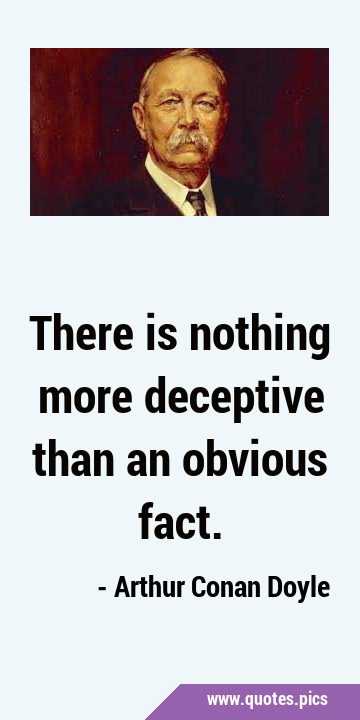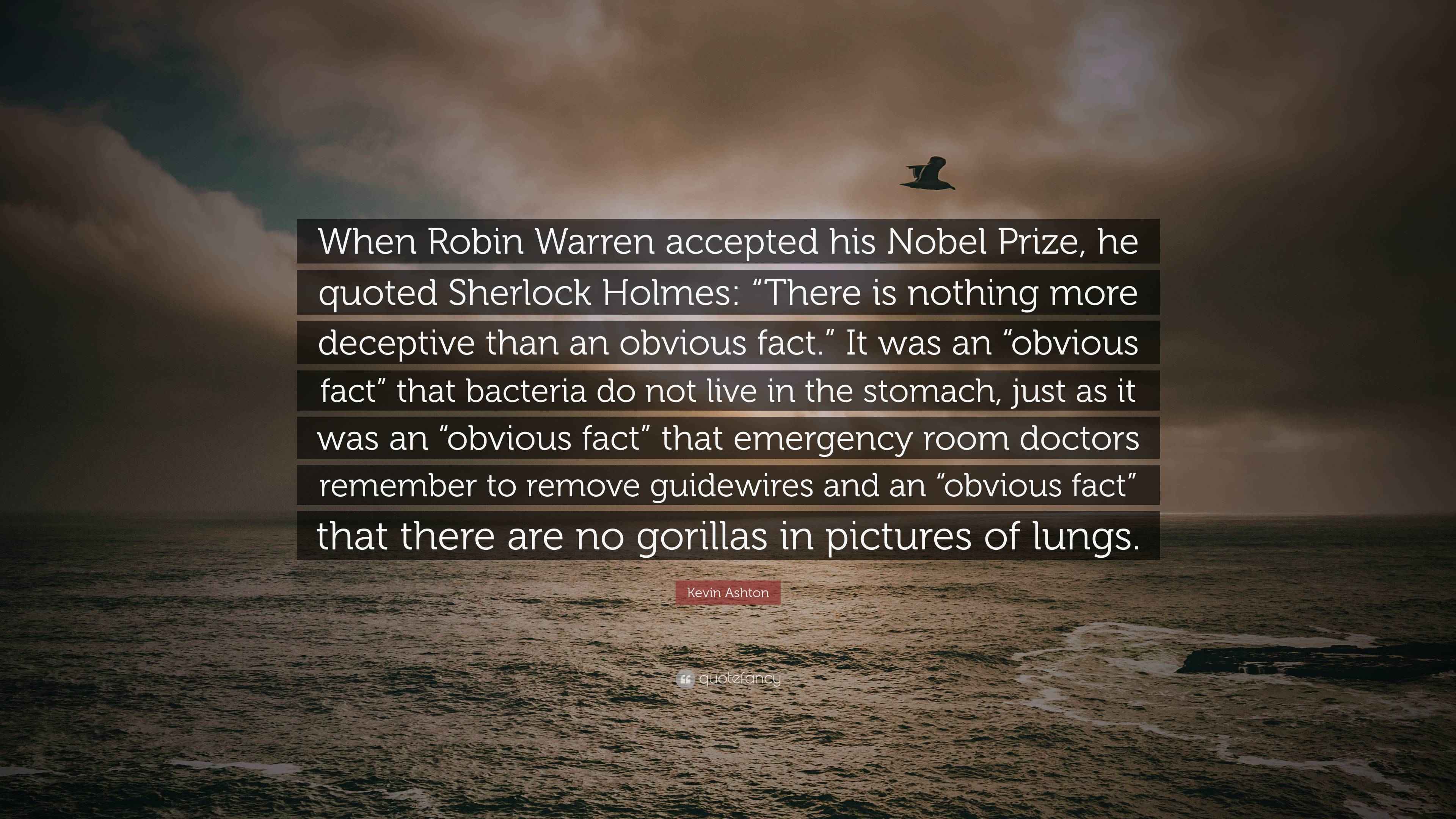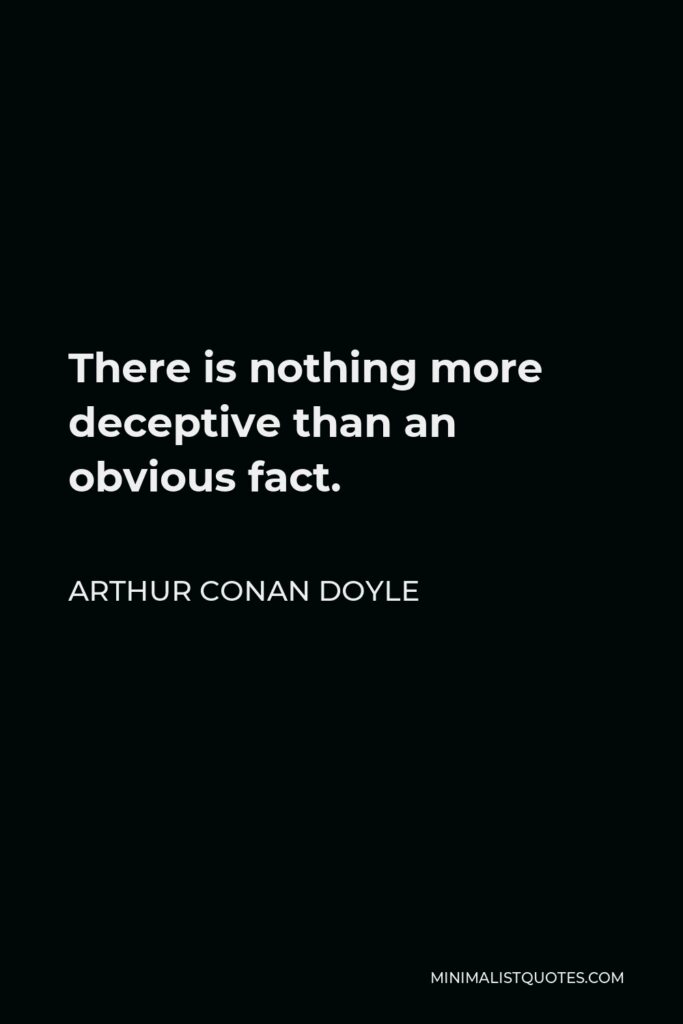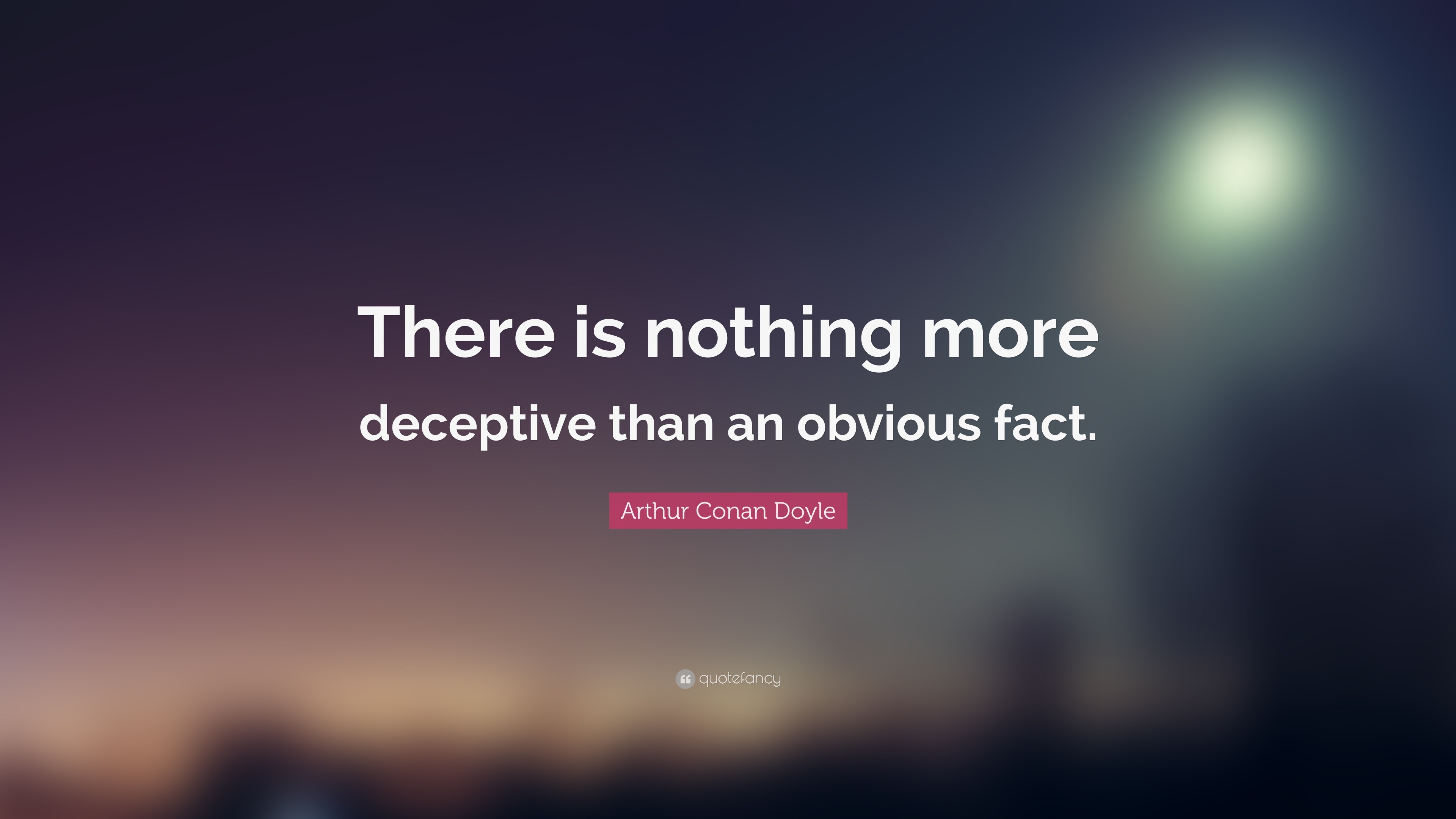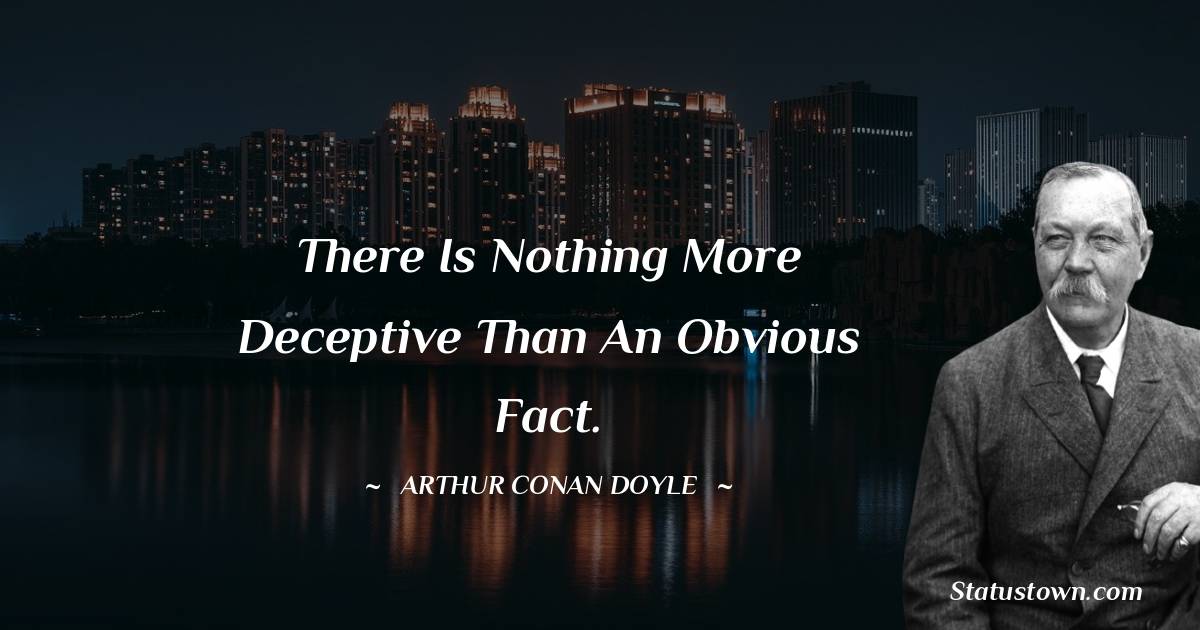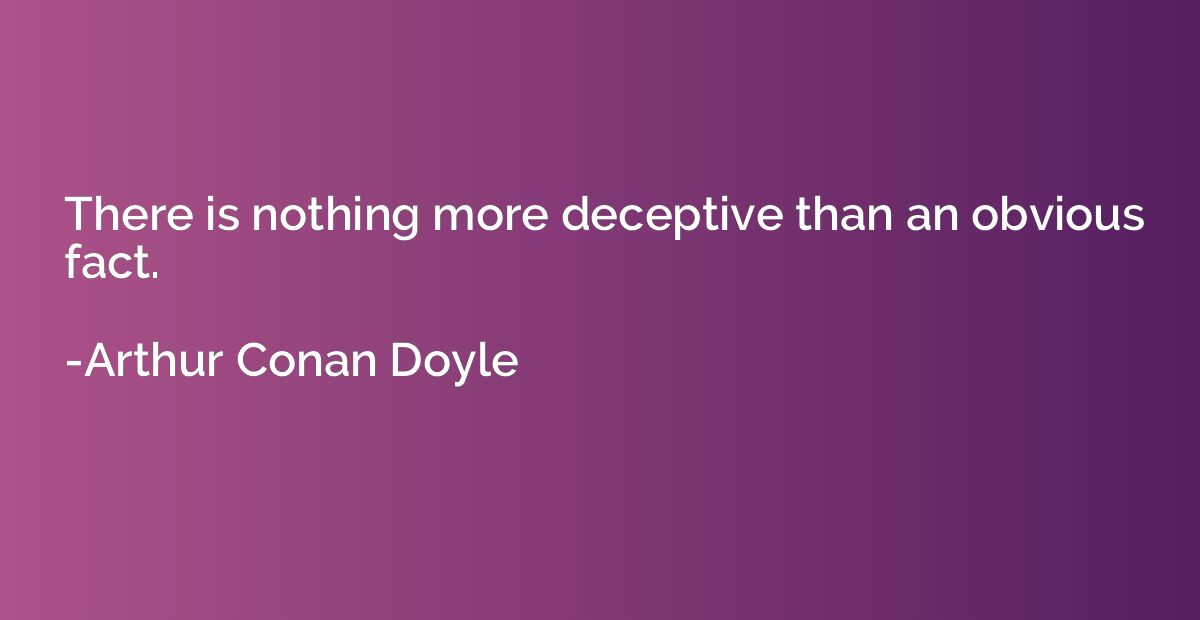There Is Nothing More Deceptive Than An Obvious
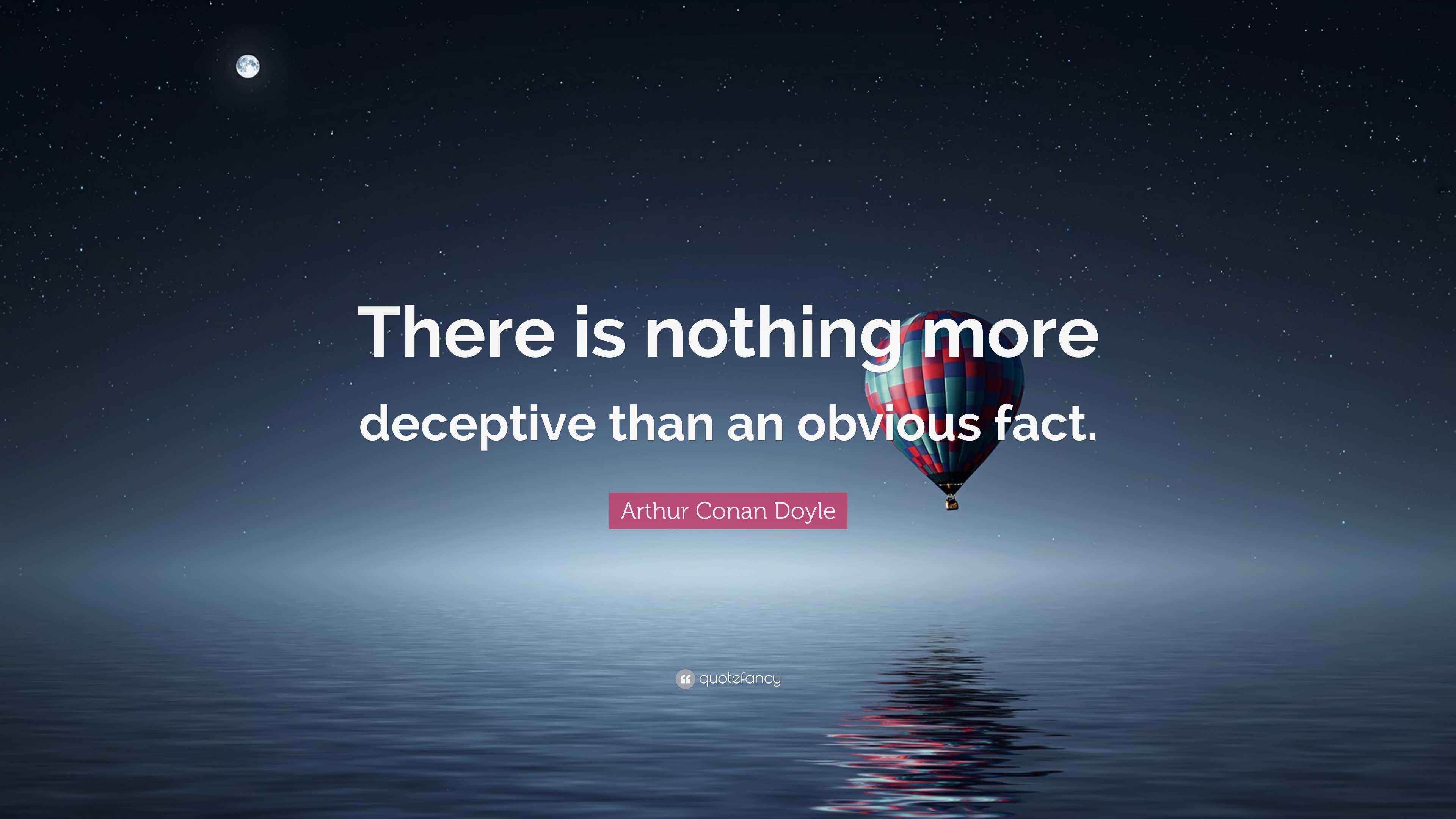
The human mind, in its constant quest for understanding, often seeks complexity, overlooking the possibility that truth might be hiding in plain sight. This cognitive bias, the tendency to dismiss the obvious, can have profound consequences across various domains, from everyday interactions to high-stakes decision-making.
This article explores how the allure of intricate explanations can lead individuals and organizations to be deceived by what is seemingly transparent, highlighting the importance of critically evaluating the readily apparent.
The Psychology of Overlooking the Obvious
Psychologists have long studied the phenomenon of why people sometimes fail to recognize what is right in front of them. One contributing factor is the human brain's inherent tendency to seek patterns and connections.
We are wired to look for underlying causes and complex explanations, often leading us to disregard the simplest answer, a principle known as Occam's Razor, which favors the hypothesis with the fewest assumptions.
This bias can be exacerbated by cognitive overload, where excessive information overwhelms our processing capacity, causing us to miss crucial details. Confirmation bias also plays a role, as individuals tend to seek out information that confirms pre-existing beliefs, blinding them to alternative explanations, even if they are more straightforward.
Deception in Plain Sight: Case Studies
Numerous historical and contemporary examples illustrate the deceptive power of the obvious. In the realm of cybersecurity, attackers often exploit known vulnerabilities, relying on the assumption that organizations will focus on defending against sophisticated threats, neglecting basic security measures.
According to a 2023 report by Cybersecurity Ventures, over 90% of cyber breaches could have been prevented by implementing simple security controls, such as multi-factor authentication and regular software updates.
In the financial industry, Ponzi schemes thrive by exploiting investors' greed and their reluctance to scrutinize seemingly too-good-to-be-true returns. Bernie Madoff's infamous scheme, which defrauded investors of billions of dollars, persisted for decades, partly because investors were blinded by the consistent, albeit unrealistic, profits.
Similarly, in politics, propaganda and misinformation often rely on repeating simple, easily digestible messages, even if they are demonstrably false. These messages, repeated frequently and consistently, can gain traction by becoming perceived as common knowledge, effectively masking their deceptive nature.
The Impact on Decision-Making
The tendency to overlook the obvious has significant implications for decision-making in various fields. In business, for example, companies might invest heavily in complex marketing strategies while neglecting the importance of providing high-quality products and excellent customer service.
This can lead to customer dissatisfaction and ultimately harm the company's reputation. In healthcare, doctors might order expensive and invasive tests to diagnose a patient's condition when a simple physical examination could have revealed the problem.
This not only increases healthcare costs but also exposes patients to unnecessary risks.
"The greatest deception men suffer is from their own opinions,"–Leonardo da Vinci.
Counteracting the Deception
Recognizing the potential for deception inherent in the obvious is the first step towards mitigating its effects. Cultivating a mindset of critical thinking and skepticism is essential.
Individuals should actively challenge their assumptions and seek out alternative explanations, even if they seem less plausible. Encouraging diverse perspectives and fostering open communication can help uncover hidden flaws in seemingly obvious solutions.
Organizations can implement strategies to promote "red teaming," where teams are tasked with identifying weaknesses in plans and strategies, forcing them to question assumptions and consider alternative scenarios.
The Role of Education and Awareness
Education plays a crucial role in equipping individuals with the critical thinking skills necessary to avoid being deceived by the obvious. Schools and universities should emphasize the importance of logical reasoning, skepticism, and the ability to evaluate evidence objectively.
Public awareness campaigns can also help raise awareness of common cognitive biases and promote strategies for overcoming them.
By fostering a culture of critical inquiry, we can empower individuals to make more informed decisions and avoid falling victim to the deceptive power of the readily apparent.
Conclusion
The paradox of the obvious lies in its very simplicity. We are often so focused on searching for complex explanations that we fail to recognize the truth that is staring us in the face.
By cultivating critical thinking skills, challenging our assumptions, and fostering a culture of open inquiry, we can better navigate the deceptive landscape of the obvious and make more informed decisions, ultimately leading to a more rational and just society.

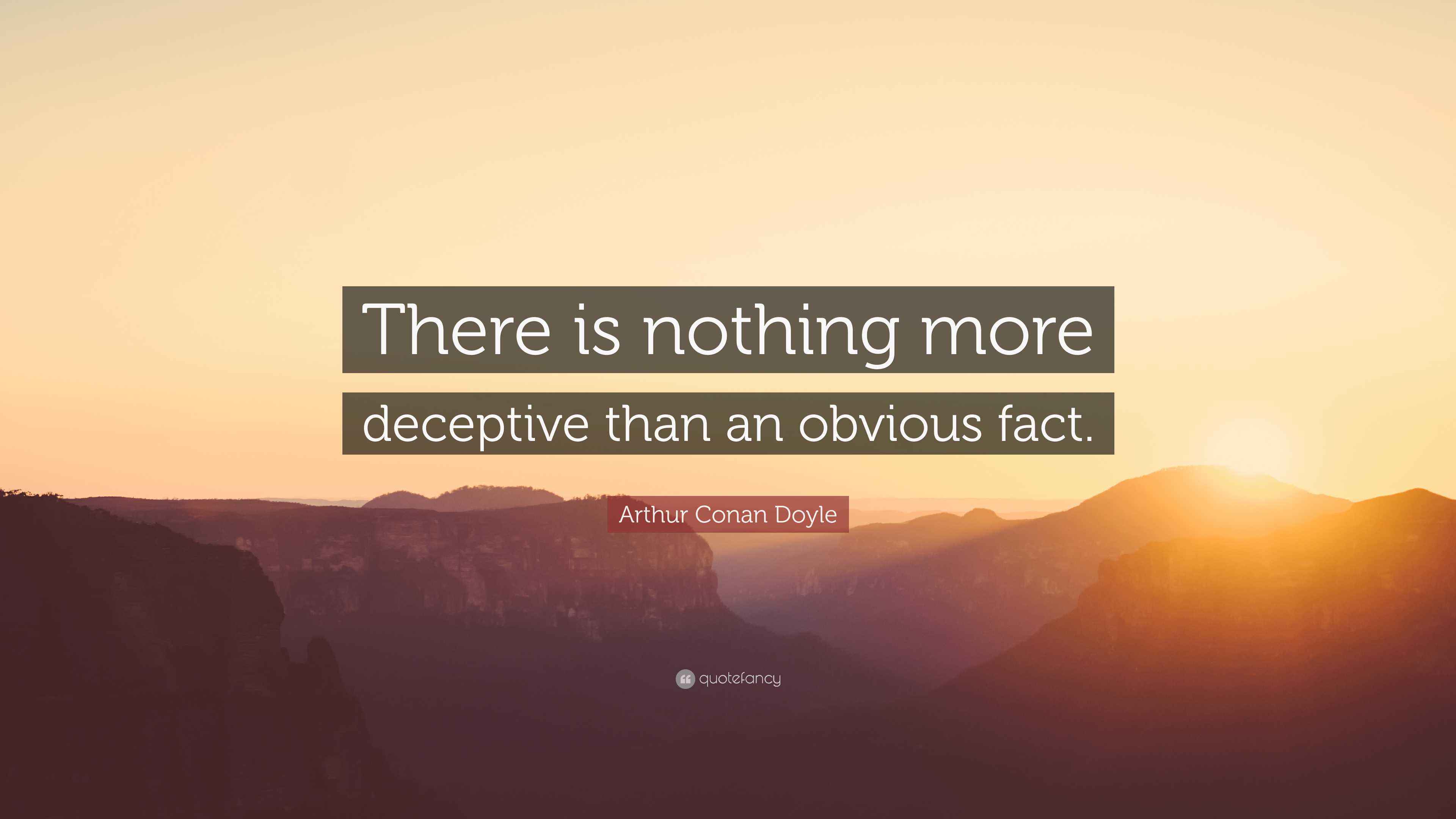
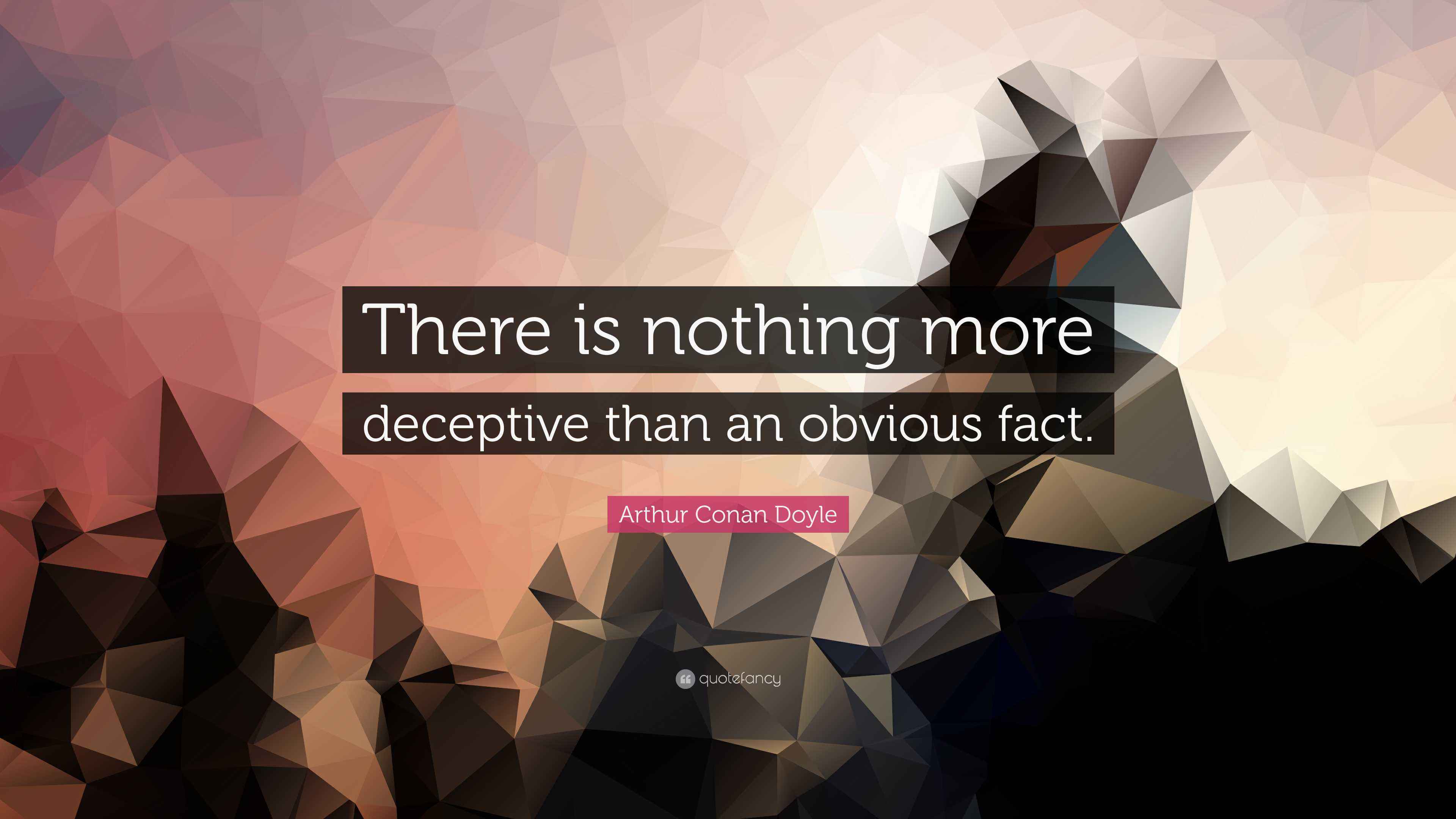

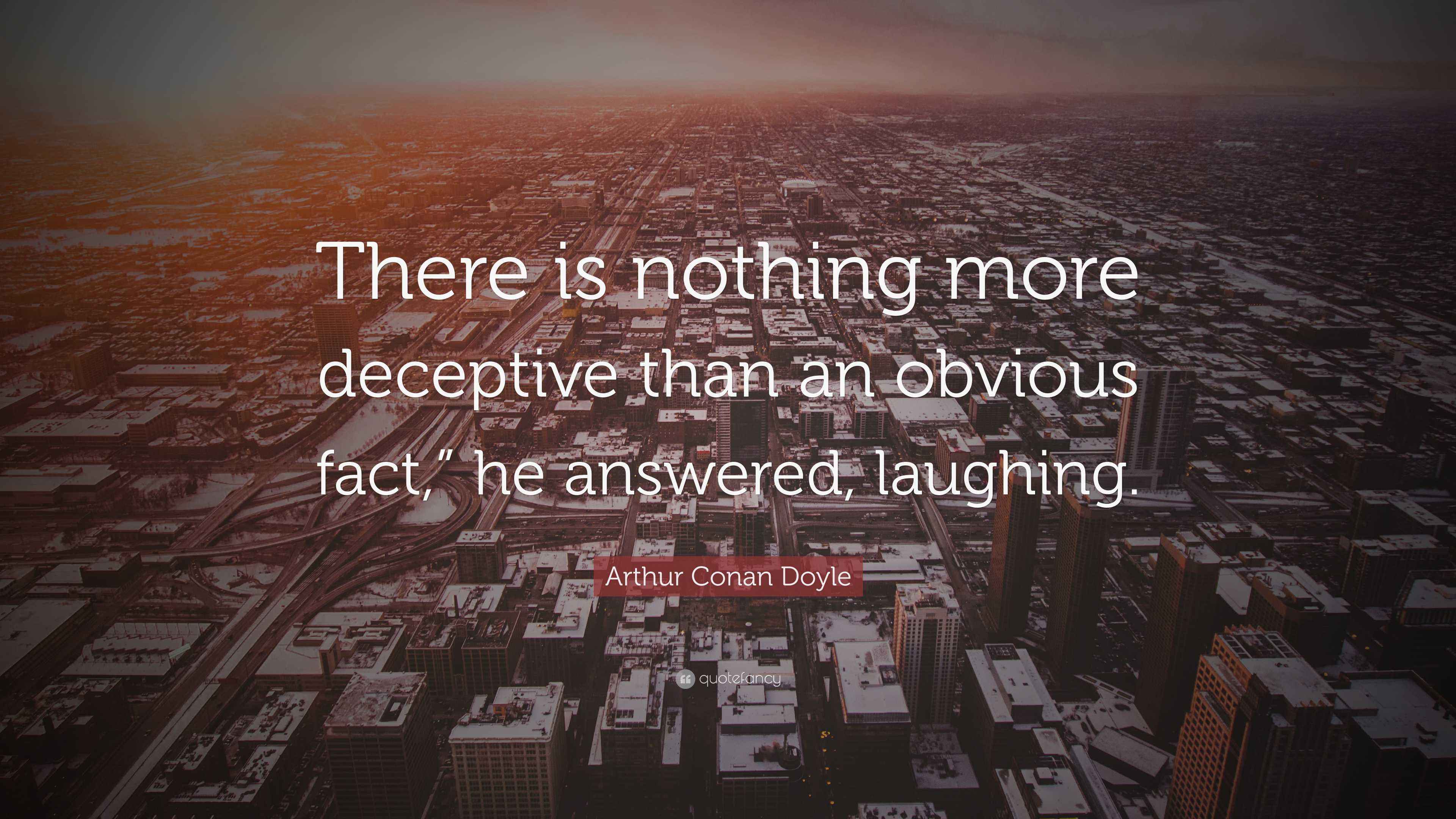
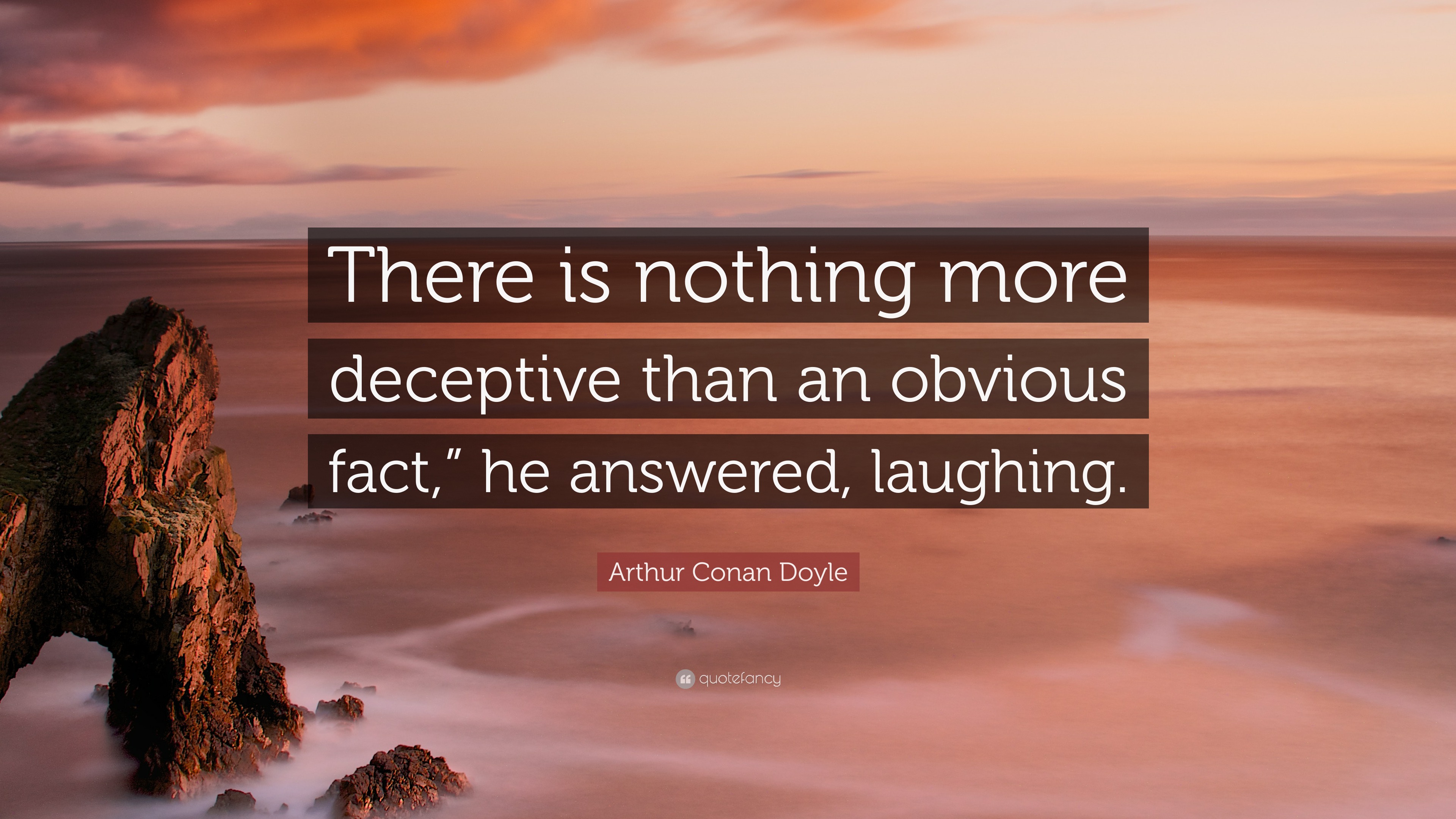
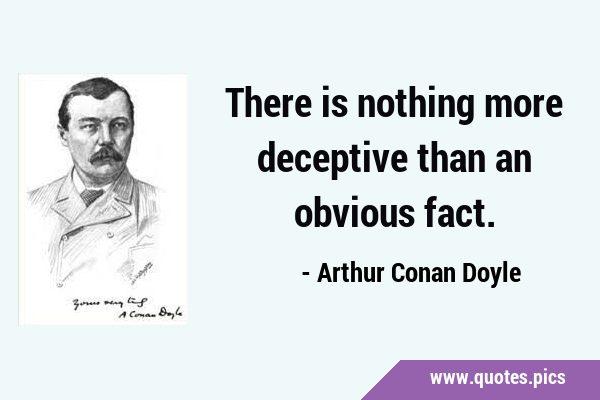


![There Is Nothing More Deceptive Than An Obvious [Sherlock Holmes] "There is nothing more deceptive than an obvious fact](https://t1.blockdit.com/photos/2020/04/5e8802a2be31ce0c76358a80_800x0xcover_DdmD0B-j.jpg)
